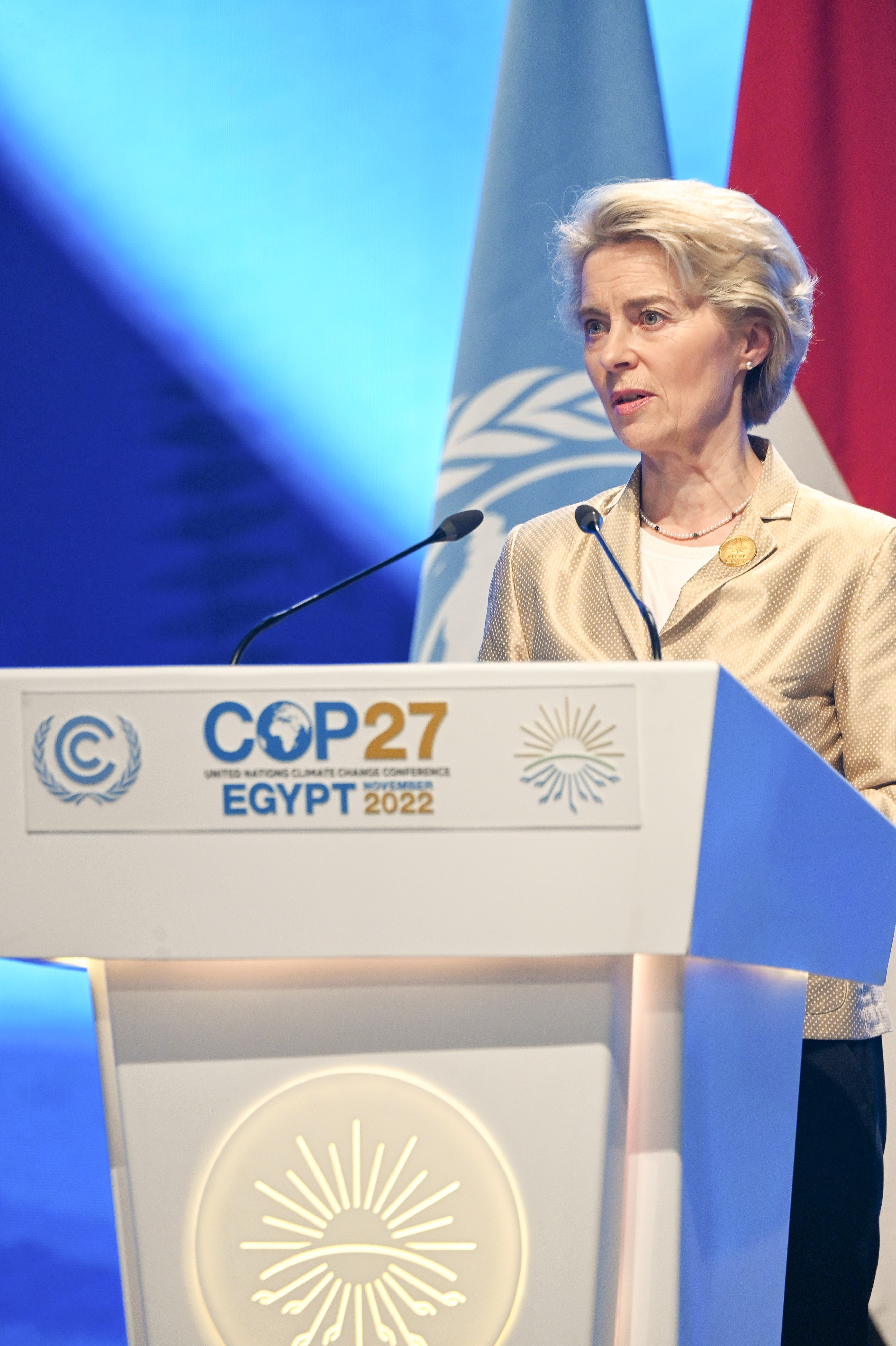EU plays game-changing role at UN COP27 climate conference

Related topics
Climate change, disaster risk reduction and desertificationdate: 19/12/2022
After two difficult weeks of negotiations, COP27 ended with the adoption of the Sharm el-Sheikh Implementation Plan on 20 November 2022. The plan captures the COP’s main political commitments and is complemented by a number of decisions that reflect the outcome of the technical negotiations.
A strong and united European effort helped secure a hard-fought deal to keep the targets of the Paris Agreement alive at COP27. The EU showed particular ambition and flexibility to keep the goal of limiting global warming to 1.5°C within reach and managed to have Parties agreeing that reaching this goal requires rapid and sustained reductions in global greenhouse gas emissions of 43% by 2030, relative to the 2019 level.
Parties also recognised that this requires accelerated action in this critical decade, and reiterated the call from the Glasgow Climate Pact for nationally determined contributions (NDCs) to be updated by the end of 2023 to align with the Paris Agreement temperature goal. They also affirmed that the Glasgow Climate Pact will guide a new Mitigation Work Programme to encourage Parties to align their targets and actions towards net zero emission targets.
The EU's bridge-building also helped to put in place an agreement to provide ‘loss and damage’ funding for vulnerable countries hit hard by the consequences of climate change. This includes a new fund with a focus on addressing loss and damage. The proposal for the fund’s design and operational arrangements will be prepared by a transitional committee throughout 2023 and submitted for adoption at COP28 in Dubai in November next year. This will be no easy task, as critical issues such as the expansion of the donor base, the definition of a country’s ‘particular vulnerability’ as well as the governance arrangements and funding priorities of the new loss-and-damage fund will prove to be particular controversial.
As far as climate finance is concerned, the inability of developed countries to deliver on the USD 100 billion climate finance goal came under the spotlight once again at COP27, with increasing pressure on donors to meet the goal by 2023 – target year of the Climate Finance Delivery Plan – and make steps towards doubling adaptation finance by 2025. By the same year, discussions on the new collective climate finance goal will have to be completed, with USD 100 billion being the minimum level of future finance.
The final COP27 outcomes complement the many bilateral and multilateral agreements secured by the Commission. President von der Leyen participated in the Leaders' Summit at the beginning of COP27 and signed memoranda of understanding with Kazakhstan on raw materials, batteries and renewable hydrogen, and with Namibia on sustainable raw materials and renewable hydrogen. Executive Vice-President Timmermans and Commissioner Simson also signed a strategic partnership with Egypt on renewable hydrogen.
Additionally, the Commission President launched five Forest Partnerships, with Congo, Guyana, Mongolia, Zambia and Uganda. The importance of nature to the interconnected climate and biodiversity crises were also a key focus of the COP15 on Biodiversity, which took place in Montreal in December.
At an event to take stock of the Global Methane Pledge launched by the EU and US one year ago, Executive Vice-President Timmermans welcomed the growing support for this initiative, which is now backed by over 150 countries. He also announced a new, EUR 1 billion worth of funding for a Team Europe Initiative on Adaptation and Resilience in Africa. Furthermore, the EU welcomed and endorsed South Africa's Just Energy Transition Investment Plan, and signed a new Just Energy Transition Partnership with Indonesia at the G20 in Bali.
At COP27, the Commission hosted over 125 side events at both the EU Pavilion in Sharm el-Sheikh and online on issues such as biodiversity protection and nature restoration, energy security and the green transition, sustainable finance, food and water security, and research and innovation.
- Statement by President von der Leyen on the outcome of COP27
- Speech by EVP Timmermans at the COP27 Closing Plenary
- COP27: Executive Vice-President Timmermans at the Ministerial side event on the Team Europe Initiative on climate change adaptation and resilience in Africa
- COP27: Strategic partnership with Kazakhstan on raw materials, batteries and renewable hydrogen
- COP27: Strategic partnership with Namibia on sustainable raw materials and renewable hydrogen
- COP27: EU launches Forest Partnerships with five partner countries
- Joint Declaration from Energy Importers and Exporters on Reducing Greenhouse Gas Emissions from Fossil Fuels
- COP27: EU and Egypt step up cooperation on the clean energy transition
- EU side events at COP27
- Decisions taken at COP27
STOP PRESS
In the next newsletter we will share and explain the outcomes of the UN Biodiversity Conference COP15, for which a deal was being negotiated at the time of writing.
